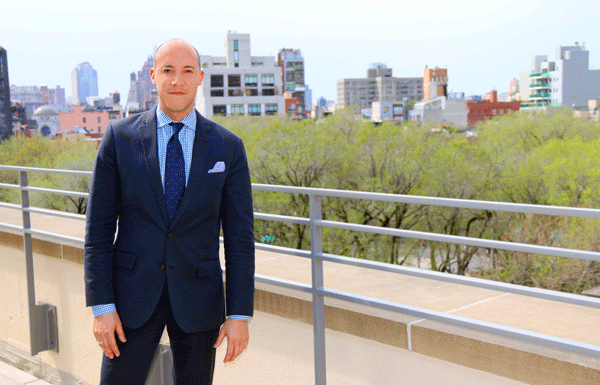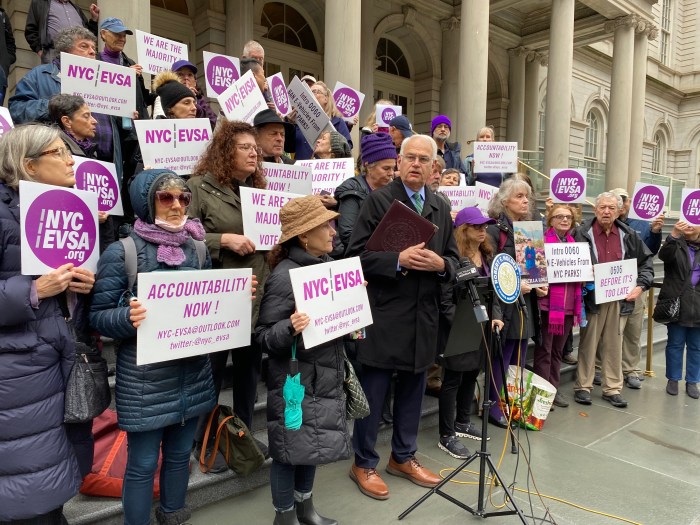
BY SAM SPOKONY | In a sense, Alan van Capelle’s first midlife crisis came at age 34.
It was then, in January 2010, that he stepped down as executive director of the Empire State Pride Agenda, less than two months after the state Senate had decisively rejected its first marriage-equality bill. Van Capelle’s seven-year tenure — which itself had come after years as a union leader — made him the Pride Agenda’s longest-serving leader, but he was still a young man.
“I worried, after I left the Pride Agenda, that I would never again find something that was so personally significant or meaningful to me,” he said in an interview last month.
Van Capelle next became deputy comptroller for public affairs under then-City Comptroller John Liu. Then, about a year-and-a-half later, he switched course once again to become president and C.E.O. of Bend the Arc, a Jewish faith-based, social-justice advocacy group.
This year, van Capelle, now 39, took the next leap in his career by becoming president and C.E.O. of the Educational Alliance, a 124-year-old nonprofit social service organization based on the Lower East Side. And for van Capelle, that decision certainly wasn’t just about staying close to his L.E.S. home, where he has lived with his husband and two young sons for the past three years.
“After all those worries I had [in 2010], I don’t think they’re going to be a problem anymore,” he said. “In my short time so far at the Educational Alliance, I think I’ve been more personally and professionally fulfilled than anything since my time at the Pride Agenda.”
That’s because he plans to bring new life to the advocacy efforts of the organization, which opened its groundbreaking Manny Cantor Center in February.
The center is being promoted as a vibrant new source of equality within a community that includes both ultra-wealthy residents and others living below poverty level in public housing. Along with numerous other services, the center features an early-childhood education program that serves both students from higher socioeconomic backgrounds and those from low-income families who receive federal Head Start subsidies. There’s also a fitness center with sliding-scale membership fees to include low-income residents alongside their wealthier neighbors.
“It’s really an experiment, because there isn’t another facility in this city that is situated at the intersection of several different communities, and which is designed to be for everybody across the economic strata,” van Capelle said. “My hope it’s a model that can be replicated.”
He said a major part of that push to expand the influence of the Manny Cantor Center, and the Educational Alliance as a whole, will involve a shift in the organization’s approach to reaching the greater public.
“What I see often in service organizations is that we do a great job of providing services, and we do less of a good job of actually telling the stories of the people we’re serving,” he said. In other words, he said, the goal is to begin having a “conversation not just about feeding people who are poor, but actually discussing why they’re poor in the first place.”
Van Capelle, who remains well connected in the political sphere, also hopes to bring his organization more directly in touch with City Hall — perhaps by bringing City Hall to him.
“I hope the mayor will have a cabinet meeting at the Manny Cantor Center someday,” he mused.
Does van Capelle see himself committing to these new goals — and his new post — for the long haul?
“Yes,” he said. “I feel like every single day that I’ve gone to work so far at the Educational Alliance, I can actually say that the lives of people in my neighborhood have been improved. To me, that’s what’s really important.”



































